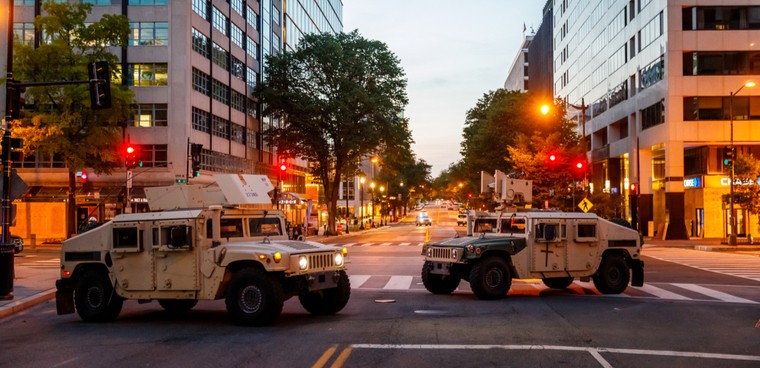Social policy takes center stage in 2021 NDAA
As the Defense Department's role in nationwide police brutality protests comes under scrutiny, expect social policy to be centered in the must-pass 2021 defense policy bill.

The Senate Armed Services Committee finished marking up its version of the 2021 National Defense Authorization Act, and one thing became clear: social policy, specifically those addressing racial and gender diversity and inclusion will be prominent in the bill's debate.
The committee agreed June 11 to include an amendment during a closed-door markup of the bill that would require the Pentagon to rename bases and other military facilities named for Confederate military leaders, but declined to include a provision that could affect diversity and inclusion military leadership.
In the committee's only open markup hearing June 9, Sen. Kirsten Gillibrand (D-N.Y.) said she was "dismayed" that several of her proposals, namely one that aimed to provide more visibility into the congressional military academy nomination choices, were excluded.
"Until we provide transparency into who we are recommending and let the public decide if we are doing our part to promote women and people of color, we will continue to see academies made up of predominantly white and male students," Gillibrand said.
"Approximately 43% of our armed service members are people of color, but of the 41 most senior commanders, only four are men of color and just one is a woman," she said.
Gillibrand's proposed amendment would require DOD to create a unified standard on demographic categories including gender, race and ethnicity, and an annual report on applicants and nominations made by each congressional district.
"The point is that members of Congress, we make recommendations to academies. So, if only 27% of the class is female, that's because members of Congress recommendations are similarly low," she said.
Race and racism in the Defense Department are coming to the fore in large part because of the use of the National Guard to police protests against law enforcement brutality following the killing of George Floyd by Minneapolis police. Defense Secretary Mark Esper and Gen. Mark Milley, chairman of the Joint Chiefs of Staff, have also come under scrutiny for their participation in a photo op with President Donald Trump in front of the White House.
Milley has since apologized, saying "my presence in that moment, and in that environment, created the perception of the military involved in domestic politics was a mistake that I have learned from."
The Pentagon announced June 11 that it would investigate the National Guard's response to protests as public and Congressional criticism mount regarding the military's involvement in demonstrations.
The House Armed Services Committee, under Democratic Party control, begins its markup of the annual defense bill July 1. It's likely that the bulk of social policy in the NDAA will come from that committee.






